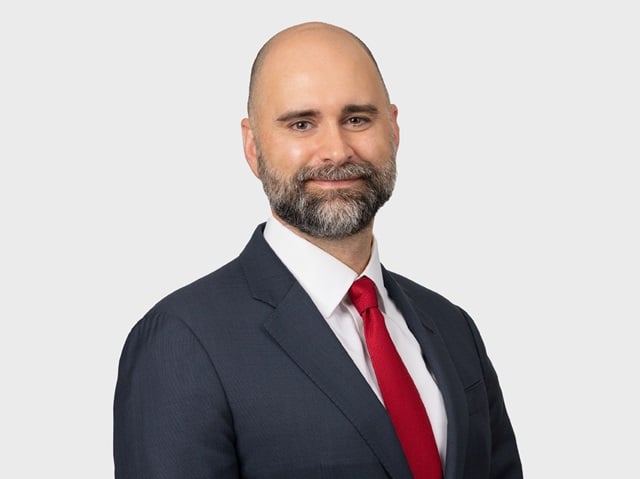At a Glance
- A dispute recently arose between Department of Justice officials about the propriety of opening a criminal investigation and taking steps like issuing a “freeze letter” related to government contractor activity in the environmental sector, leading to the resignation of a senior figure in the U.S. Attorney’s Office for the District of Columbia.
- These events indicate that the DOJ is willing to take aggressive steps to carry out investigations in areas of focus to the Trump administration, even if such efforts are opposed by career prosecutors.
- Government contractors with Biden-era grants or contracts in areas of interest to the Trump administration — such as the energy or environmental sectors — should be prepared to respond to this trend. We provide some recommendations should you or your business be confronted with similar investigative efforts by the DOJ or another federal government agency.
On February 18, 2025, Denise Cheung, leader of the criminal division at the U.S. Attorney’s Office for the District of Columbia, abruptly resigned. Prior to her resignation, Cheung had been at the Department of Justice (DOJ) for more than 24 years and was responsible for overseeing national security cases and violent crime prosecutions, among other high-profile investigations. Cheung’s decision to retire stems from a dispute with senior DOJ leadership about the propriety of opening a criminal investigation related to grant funds being disseminated to government contractors and the specific initial investigative steps that the leadership requested. This dispute provides insight into DOJ’s shift in enforcement priorities, its new focus on government contractors who work in policy areas that are disfavored by the new administration, and the aggressive approach it will take when it believes that corporate entities are engaged in alleged fraud or other misconduct.
Background
According to her now-published resignation letter, Cheung was directed by interim U.S. Attorney Ed Martin “to open a criminal investigation into whether a contract had been unlawfully awarded by an executive agency” during the previous administration under former President Biden. Cheung does not specify the target of the investigation, but according to various media reports the contracts relate to “green bank” funds that were to be used in efforts to invest in numerous projects to fight climate change and promote environmental justice. Cheung was also directed to issue a “freeze letter” — a letter directing the bank to freeze assets in an account belonging to the contractor based on the claim that the funds “are subject to seizure and forfeiture to the United States” as part of a criminal investigation. Notably, Cheung claims in her letter that these requests originated from the Office of the Deputy Attorney General, the second-highest office in the DOJ.
Cheung stated that she did not believe there was enough basis to open a grand jury investigation, though she appears to have relented. With regard to the “freeze letter,” Cheung initially worked with the Federal Bureau of Investigation (FBI) to submit a letter to the bank “recommending” that the funds be frozen. DOJ leadership did not believe this to be sufficient, but she refused requests to take further actions to freeze the funds because she believed that she “lacked the legal authority to issue such a letter” and “explained that the quantum of evidence did not support that action.”
DOJ Criminal Investigations, Freeze Letters and Forfeiture — What This Means
The dispute between a career prosecutor and DOJ political leadership centers on both the opening of a grand jury investigation and the propriety of certain measures taken to freeze or seize assets being held at a financial institution.
One of the primary tools of a federal criminal investigation is the grand jury, a group of people selected to evaluate evidence and determine if there is probable cause to conclude that a crime has been committed. If a grand jury reaches such a conclusion, they can return a criminal indictment, the charging instrument that identifies the alleged criminal conduct and signals the beginning of a formal criminal proceeding in federal court. DOJ trial attorneys and assistant U.S. attorneys carry out criminal investigations (typically in secret) in the name of the grand jury, by issuing various forms of legal process, such as grand jury subpoenas, to secure the evidence necessary to decide if a crime has been committed.
DOJ attorneys can open a grand jury investigation and begin to issue legal process based on a minimal amount of information. Indeed, the Supreme Court has explained that a grand jury investigation can be conducted even if it is just to assure a grand jury that a crime has not been committed. United States v. R. Enterprises, Inc., 498 U.S. 292, 297 (1991) (“the grand jury can investigate merely on suspicion that the law is being violated, or even just because it wants assurance that it is not”) (cleaned up). However, practices differ across DOJ sections and U.S. Attorney’s Offices, and different offices may require more significant information than the minimum legally required to begin a grand jury investigation.
With regard to the specific investigative measures at issue, a “freeze letter” is a colloquial term used for a letter request by DOJ asking a financial institution to voluntarily hold assets in place (the “freeze”) to prohibit the holder of the account from moving the assets to another location. The legal propriety of freeze letters are questionable absent some indication of exigent circumstances (such as some indication it will be further hidden or transferred out of the reach of the U.S. government), since they interfere with a person’s use of their property and may amount to a “seizure” that implicates the Fourth Amendment. Financial institutions often honor these requests to appear cooperative with law enforcement, to avoid risk of sanctions violations and for other reasons specific to a particular case. But courts have criticized their usage, and they are typically only supposed to be used when there is a significant risk of dissipation of the assets. See United States v. Cosme, 796 F.3d 226, 235-36 (2d Cir. 2015) (holding that use of freeze letter and failure to obtain a seizure warrant shortly after the request was contrary to the Fourth Amendment’s warrant requirement). As Cosme indicates, the proper mechanism to freeze and ultimately take assets in a criminal investigation is a seizure warrant, which can only be issued after authorization by a federal judge. See Fed. R. Crim. P. 41.
While a difference in office practice may be part of the dispute (notably, the acting Deputy Attorney General Emil Bove was originally a federal prosecutor in the Southern District of New York, not the District of Columbia), the fact that a career prosecutor with decades of experience believed she needed to resign rather than open and carry out this investigation suggests that the unspecified evidence the DOJ wanted to use to open a case and freeze assets was inadequate or otherwise failed to demonstrate any significant indication of criminal misconduct.
While Cheung did not name either the contracting agency or value of the assets at issue, anonymous DOJ officials have stated that it relates to a $20 billion Environmental Protection Agency (EPA) grant, which funds programs related to climate change. In light of President Trump’s stated intent to roll back former Biden-era spending on programs in the sustainable energy and environmental sector, the Trump administration may also be seeking to utilize forfeiture as a tool to circumvent the recent U.S. district court decisions halting his federal funding freeze. At a minimum, these events indicate that the DOJ is willing to take aggressive steps to carry out investigations in areas of focus to the Trump administration, even if such efforts are opposed by career prosecutors on ethical or legal grounds. And it highlights that — while the DOJ may be reducing corporate enforcement efforts in some spaces, such as the Foreign Corrupt Practices Act (FCPA) — they are going to continue to pursue and even increase enforcement in other areas, like government contracting.
As such, government contractors with Biden-era grants or contracts in areas of interest to the Trump administration — such as the energy or environmental sectors — should be prepared to respond to this trend.
What to Do If You Are the Subject or Target of Criminal Investigation
Contractors that find themselves on the receiving end of a federal criminal investigation, or notified that their assets are being frozen, should take care to consider the following recommendations:
Do Not Speak to Law Enforcement Without a Lawyer Present
If contacted by law enforcement, politely, but firmly, tell them that you will not speak with them without your lawyer present.
Do Not Consent to Searches or Seizures
If asked for permission by law enforcement to do anything (come into your office, take paperwork, look in your truck, etc.), tell them (again, politely) that you do not consent. Do not attempt to impede any actions they may try to take, but do not agree to anything orally or in writing. If they ask you to sign anything, read it carefully and ensure your signature does not reflect your consent to their actions — if in doubt, decline to sign the document.
Ask for the Legal Basis for Freeze/Seizure
As noted above, assets cannot be frozen and ultimately seized without a seizure warrant. If contacted by your financial institution about a freeze of assets, ask the institution to provide you with the legal process that supports the freeze.
Keep Track of Involved Parties
Try to obtain the names of the people and entities involved, especially the trial attorney or assistant U.S. attorney who authorized legal process, the names of any agents involved in contacting you, and, at a minimum, the names of the agencies and departments within those agencies involved in the action (e.g., “Criminal Division, Fraud Section of the Department of Justice”).
Have a Plan With Your Employees
Make sure your employees know how to handle a visit from law enforcement or a freeze by a financial institution, and that they are trained to appropriately respond and notify senior officials in the company as necessary. Ensure employees are aware that no one should be providing substantive information to law enforcement without your legal counsel’s express approval.
Keep Your Records
Ensure any paperwork potentially related to the matter (including contracts, transfer authorizations or email communications with government officials, among other things) are in your possession and available to be provided to legal counsel quickly, if not already in their possession.
Secure Legal Counsel
Consider securing legal counsel with experience dealing with the Department of Justice in advance and begin planning a legal response or media-relations response to any such action that is specifically tailored to your business needs.
.svg?rev=a492cc1069df46bdab38f8cb66573f1c&hash=2617C9FE8A7B0BD1C43269B5D5ED9AE2)





